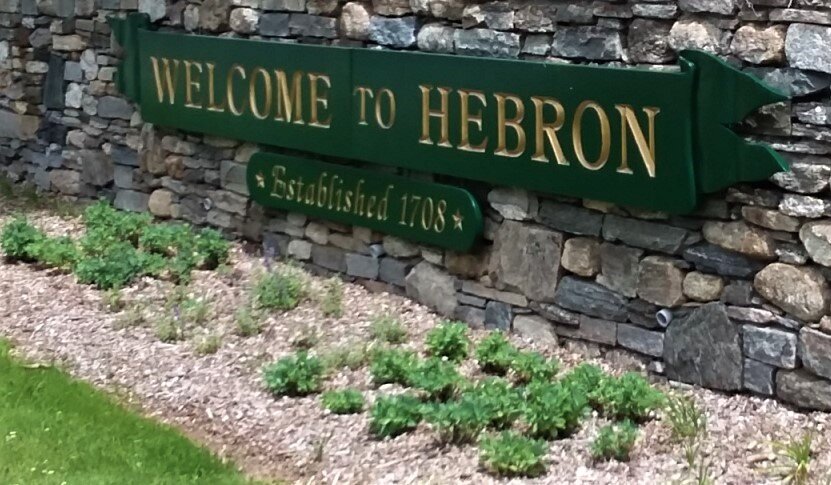Pollinator Pathway
Hebron joins the fight to save pollinators
Hebron’s own Green Garden Gang has planted two native, pollinator gardens. One in front of Old Town Hall and the other in Raymond Brook Preserve. Hebron is just one stop on the Pollinator Pathway–a corridor that provides refuge and nutrition for bugs, bees and small mammals–with over 85 towns participating in CT and NY.
What is a pollinator?
A pollinator is a bee, butterfly, insect, bird, bat, even some mammals and amphibians, that move pollen from one plant to another. These pollinators enable cross fertilization and allow the reproduction and growth of new plants.
Why should we care?
Over 1/3 of ALL the food we eat is the result of the work of a pollinator. Widespread application of pesticides and other chemicals, landscaped planting and agricultural crops threaten their very existence.
What can I do?
You don’t have to have hundreds of acres to make a difference in the pollinator population. Start small! Try small pots, or letting a corner of your yard grow wild. Small steps in your yard can make a big impact globally.
JOIN THE PATHWAY
Plant native plants in your own yard, which provide food and shelter and commonly need less water, fertilizer and pesticides to thrive in our area. Remove invasives too!
GO PESTICIDE FREE
Pesticides are made to kill bugs. By reducing pesticide use on your property, you are not only helping the pollinators, but your soil, waterways and other living organisms.
RETHINK YOUR LAWN
Consider going organic or converting some of your water craving lawn to hardy and low maintenance native trees, shrubs or flowers. Mow less and leave clippings to compost.
Already a gardener?
STOP AND SMELL THE ROSES… BUT WAIT! NO SMELL? LET’S LOOK AT WHAT’S GOING ON.
It takes a lot of toil and trouble to make your landscape look pretty, neat, colorful, fragrant and make a greener lawn than the Jones’s. And It’s enjoyable to step back and take pride in the aesthetics of your garden, but there’s more ways to enjoy your garden than making it look good. If you look closer you might notice the stillness, silence and how little fragrance emits from the flowers. Pretty, but no sign of life!
It’s time to rethink the purpose of your garden: time to awaken your senses, time to Garden for Life! Yours and all that surrounds you.
Begin by Stepping up to that roadside goldenrod weed and be amazed. So much buzzing, and flitting about. Notice the little orange sacks the bees are carrying on their legs, notice how yellow pollen is sticking to the fuzzy hairs of some bees, notice the variety of insects working hard to take nourishment for them and their offspring. The plants and the insects are alive in web of life.
Consider trying some native plantings in your garden, and give a future to pollinators on your property.
Extra credit
NATIVE FLOWERS BY SEASON
courtesy of Dr. Kimberly Stoner and The Pollinator Pathway
NATIVE TREES & SHRUBS BY SEASON
courtesy of Dr. Kimberly Stoner and The Pollinator Pathway
Where to buy native plants
Scotts Nursery, Glastonbury
Paul & Sandy’s, East Hampton
Want to be a part of the action?
Please reach out! There is lots of socially distanced work to be done.












